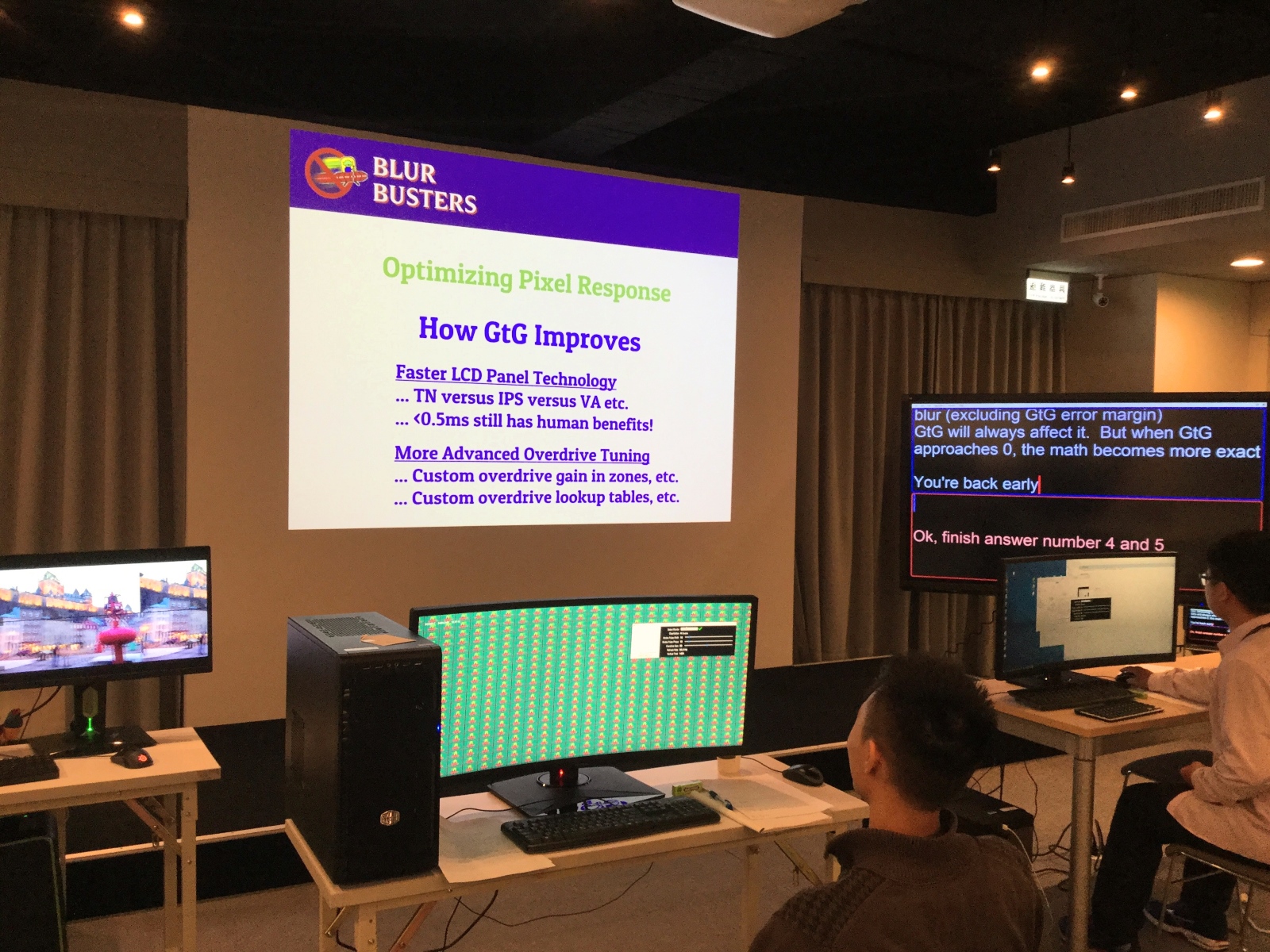Ay, that's the catch.
The venn diagram of "software developers" and "people who understand Blur Busters topics" is unfortunately a vanishingly small overlap.
Part of my work with Mike of Retrotink 4K is merely training him on blur busting. I did that online, through various online consulting services. This is the part of consulting that I get the most rave reviews on.
Many teams (one person knows blur busting physics, but someone else knows software development) have a lot more difficulty with putting actual blur busting practices to production. Even moreso if you're outsourcing to a chinese firmware engineer, and trying to explain certain firmware changes you want made.
<Shameless-Plug>
I sometimes teach classrooms about the various Blur Busters concepts by hire. I teach various kinds of blur busting concepts from very simple (basics) through very advanced (engineers). It's one of my favourite paid work for Blur Busters is training services, since I get to travel to far-away business destinations from time to time.

If you know a company needs training services on understanding blur busting better, I'm your guy to hire for a training contract (e.g. mornings or afternoons over a period of a few days). I can teach a software developer team, project managers, marketing departments, executives, on both the technical side.
For executives, it includes improved understanding of blur busting physics via 240Hz PowerPoints made out of strategic educational custom TestUFO tests, as well as shortcuts to avoid reinventing too many wheels and save costs. For engineers, an improved understanding means less time wasted coding & testing. And efficient development life cycles involved in blur busting -- whether adding BFI to a product, or deciding whether you should replace 60Hz screens to 120-240Hz screens for a commercial product, or helping with a motion blur reduction feature (BFI or strobing), etc.
One problem I do have is convincing inexperienced executives why I should teach their engineers about improved blur busting techniques, because they don't always realize that it's a good use of consulting money to sidestep trying to R&D self-educate on what I can educate quicker and more cheaply on.
So sometimes I rely on word of mouth by excited developers of companies persuading their management to fund training costs, etc.
</Shameless-Plug>


